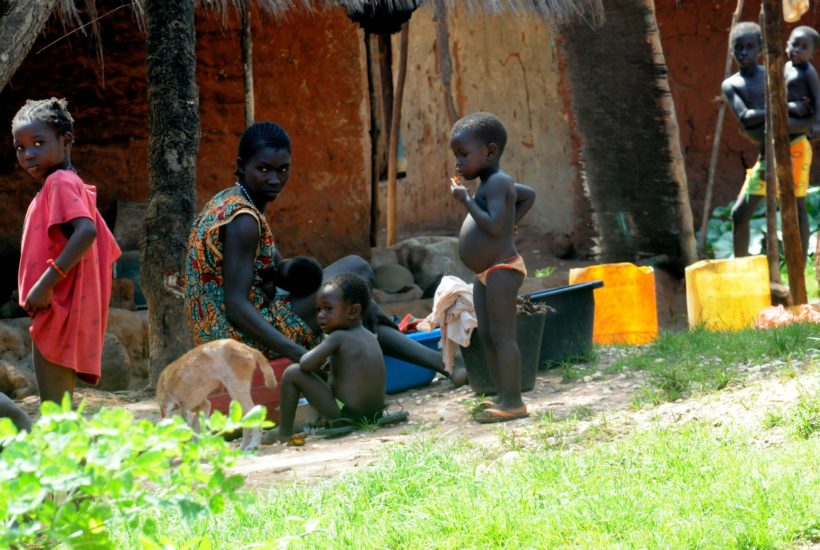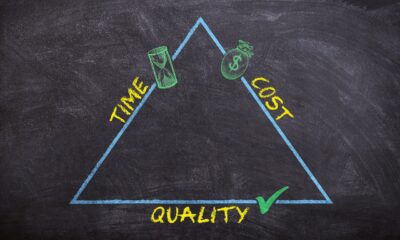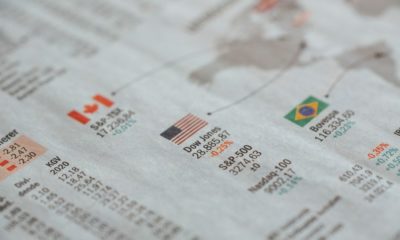Africa
The economic impact of the COVID-19 in Guinea Bissau will be devastating
More than 80% of the Guinean population depends directly or indirectly on the marketing campaign for cashew nuts, which also represents a contribution of 11% to state revenue and 90% of the country’s total exports. The coronavirus pandemic deeply affected the cashew nut marketing campaign and the negative effects on the country’s economy will be soon visible.

Guinea-Bissau’s Finance Minister João Fadiá recently said that the economic impact caused by the coronavirus pandemic in the country will be “very negative” because it has strongly affected the cashew nut marketing campaign.
“Trade has been operating within a very narrow geographic limit. Markets have been closed. Transportation and movement of people between regions have been suspended. International trade (import and export) was greatly reduced. In addition, the most serious reduction happened in the cashew nut sector, the country’s main export product,” João Fadiá said in an interview with Lusa.
Find out more details about the effects of the coronavirus pandemic on Guinea-Bissau’s economy and read the latest economic news in the world, with the Born2Invest mobile app.
IMF downgraded the Guinea Bissau’s GDP growth for 2020
“All this explains the downward revision of our GDP growth projections for 2020, but in fact nobody knows yet, with any accuracy, the effects that this situation will effectively have on the economy,” the Finance Minister said.
With economic growth forecasts of 4.5% of Gross Domestic Product for 2020, before the pandemic began, the International Monetary Fund now predicts a contraction of -1.9% for Guinea-Bissau.
In relation to the marketing of cashew nuts, the minister explained that in addition to the measures to halt the new coronavirus pandemic, delays at government level and a decrease in international demand also contributed to a weak campaign.
“The late announcement by the Government of the reference price to the producer, as well as the conditions of export (costs to be borne by exporters), meant that the price charged to the producer was very low in relation to the expectations created before the pandemic,” said João Fadiá.
The price of the kilogram of cashew nuts bought from the producer was $0.43 (250 cfa), about 0.38 euro cents compared to $0.87 (500 cfa), about 0.76 euro cents in 2019.
“The low demand on the international market for crude chestnuts (India and Vietnam) continues to constrain national operators to buy the chestnuts still available from producers,” said the minister.
That situation occurs throughout the sub-region, which still has important stocks to export.
“Finally, the arrival of the rainy season, makes it very difficult to evacuate the product to Bissau, in addition to contributing to its low quality, given the degree of humidity in this period,” he stressed.
More than 80% of the Guinean population depends directly or indirectly on the marketing campaign for cashew nuts, which also represents a contribution of 11% to state revenue and 90% of the country’s total exports.
“This situation has and will have a very negative impact on the economic life and people of Guinea-Bissau in 2020,” he said.
To revive the economy, the Guinean government recently presented an emergency development program, budgeted at around $300 million (€263 million), which needs assistance from international partners.
“We believe that this program is absolutely necessary to reverse the current negative trend of economic activity. But more than responding to the conjunctural effects of the COVID-19 health crisis, this program has a reformist stamp and intends to carry out a set of reforms in the economy, for a reorientation based on formalization and with a stronger business fabric, capable of contributing to increase our productivity and make our economy stronger and more competitive,” explained the minister.
__
(Featured image by Valeria Rodrigues via Pixabay)
DISCLAIMER: This article was written by a third party contributor and does not reflect the opinion of Born2Invest, its management, staff or its associates. Please review our disclaimer for more information.
This article may include forward-looking statements. These forward-looking statements generally are identified by the words “believe,” “project,” “estimate,” “become,” “plan,” “will,” and similar expressions. These forward-looking statements involve known and unknown risks as well as uncertainties, including those discussed in the following cautionary statements and elsewhere in this article and on this site. Although the Company may believe that its expectations are based on reasonable assumptions, the actual results that the Company may achieve may differ materially from any forward-looking statements, which reflect the opinions of the management of the Company only as of the date hereof. Additionally, please make sure to read these important disclosures.
First published in Africa 21 Digital, a third-party contributor translated and adapted the article from the original. In case of discrepancy, the original will prevail.
Although we made reasonable efforts to provide accurate translations, some parts may be incorrect. Born2Invest assumes no responsibility for errors, omissions or ambiguities in the translations provided on this website. Any person or entity relying on translated content does so at their own risk. Born2Invest is not responsible for losses caused by such reliance on the accuracy or reliability of translated information. If you wish to report an error or inaccuracy in the translation, we encourage you to contact us.

-

 Cannabis2 weeks ago
Cannabis2 weeks agoCannabis Clubs Approved in Hesse as Youth Interest in Cannabis Declines
-

 Crowdfunding5 days ago
Crowdfunding5 days agoWorld4All, a Startup that Makes Tourism Accessible, Surpasses Minimum Goal in Its Crowdfunding Round
-

 Fintech2 weeks ago
Fintech2 weeks agoKraken Launches Krak: A Game-Changing Peer-to-Peer Crypto Payment App
-

 Crypto2 days ago
Crypto2 days agoThe Crypto Market Rally Signals Possible Breakout Amid Political Support and Cautious Retail Sentiment

























